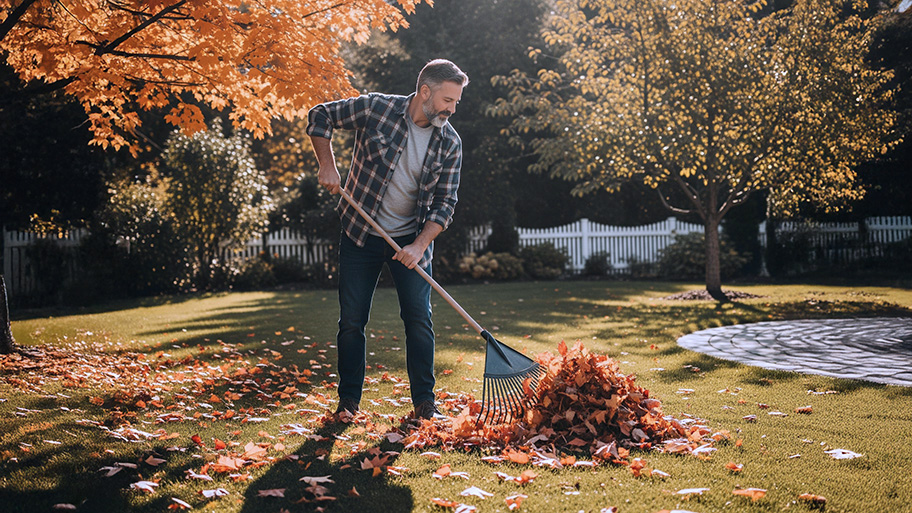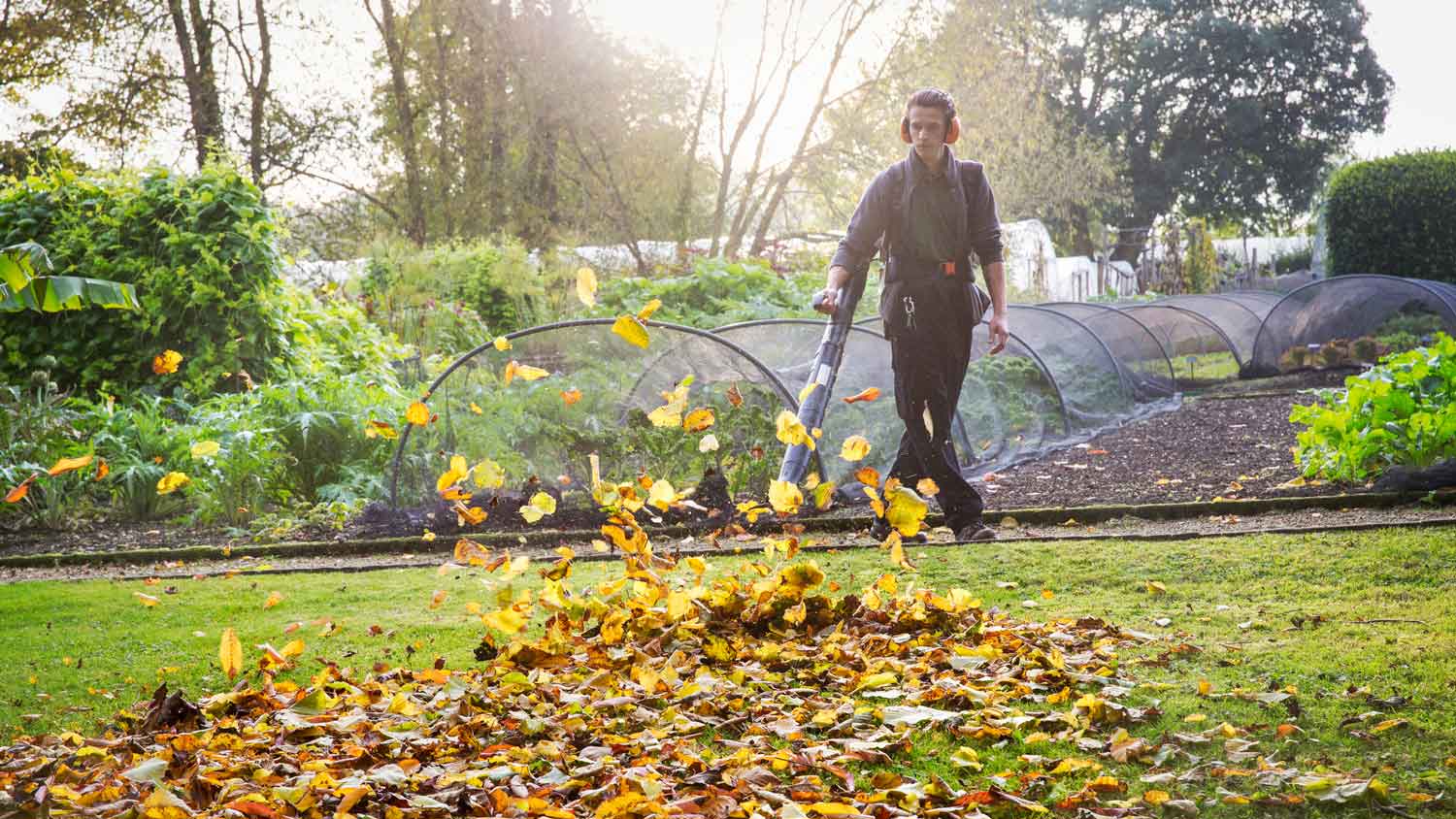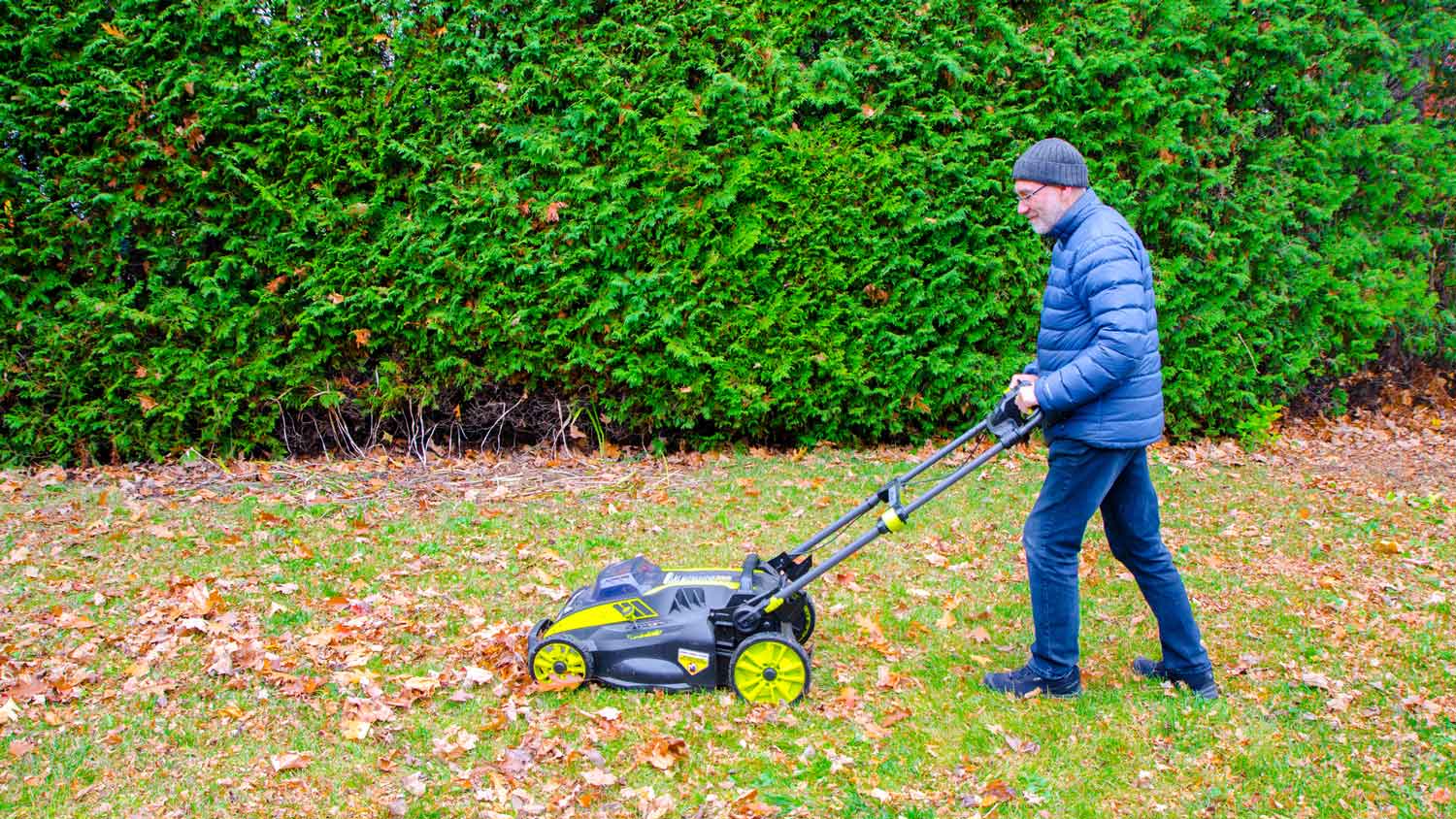
A yard cleanup can keep your lawn clean and prepare it for the next season. Find out the average yard cleanup cost and what can affect it.
Ditch the rake and remove your leaves like a pro


With the fall season comes football, pumpkin spice, and—you guessed it—falling leaves. Raking leaves can be an annoying chore for homeowners, but luckily, there are other ways to remove your leaves that don’t involve a rake and blisters on your hands. Read on for five easy methods to get rid of leaves without raking.
Getting rid of leaves in the fall can be a pain, but it’s important for both curb appeal and the overall health of your lawn to not let them pile up.
Having said that, a small amount of leaf litter can actually be good for your lawn, so you may be able to leave some of the leaves. What you want to avoid is a thick layer of matted leaves on the lawn; this can smother the grass and inhibit growth in the spring. Excessive leaf matter can also cause snow mold diseases if you live in a snowy climate.
Take care of your lawn and prevent future problems down the road by being proactive about getting rid of leaves.

Here are five simple methods to get rid of leaves without using a rake:
No need to rake, just blow the leaves away! This method works great on a smaller amount of leaves that can be quickly blown into piles to bag up for disposal. Start at one end of the yard and slowly blow the leaves in the desired direction, pointing the leaf blower downward. Use a lower setting to have more control over where you blow the leaves.
One of the easiest ways to get rid of leaves without raking is by using a lawn mower to mulch the leaves. If your mower has a bag and the ability to mulch, go over the leaves with your mower to shred them into tiny pieces. You can then bag the leaves to dispose of them or leave them on your lawn to decompose, which will add nutrients to the soil.
Leaf vacuums can make removing leaves a breeze. All you have to do is suck the leaves up with the vacuum. The vacuum then will mulch the leaves into smaller pieces and collect them into a bag. Then, dump the leaves into bags for disposal or scatter the leaf pieces around the yard as mulch. You can rent a leaf vacuum from your local home improvement store to see if it’s worth the investment for future fall seasons.
You can get rid of leaves using a simple household push broom. Simply sweep the leaves off of your porch, driveway, and lawn by pushing them with the broom. While similar in concept to raking, a push broom covers a larger surface area, and it’s less taxing to push the leaves into piles than it is to rake them. Once the leaves are in piles, transport into yard bags.
While a little untraditional, don’t knock this method until you try it. Hold a large, flat piece of cardboard at a 45 degree angle and slide or push the leaves away from your yard into a bag or the curb (similar to a push broom). You’ll want to make sure the cardboard is sturdy enough to push the leaves away.

As you prepare to get rid of leaves in your yard, here are a few tips to make the process go smoother:
Wear proper clothing: As with any project, you’ll want to make sure you wear the proper gear when you get rid of leaves. Closed-toed shoes and gardening gloves are a good idea to prevent injuries. If you’re prone to allergies, a dust mask might be another good idea.
Pick the right time: Getting rid of leaves can be a pain because trees are constantly dropping their leaves for weeks on end. If you plan to bag and dispose of them all, save yourself some time and frustration by waiting until the end of the season when most of the leaves have fallen to remove your leaves. If you’ll be mulching your leaves with a lawn mower, however, it’s best to do it earlier in the season before there’s too much buildup for your mower to get through.
Don’t burn leaves: While burning leaves seems like a simple way to get rid of them, it’s illegal in some areas. Burning leaves is also a fire hazard and generates a lot of smoke that can be harmful to the environment.
Leaf removal isn’t a quick job, but luckily, it isn’t too expensive to do on your own. Most of the tools are likely already in your home, such as a lawn mower or broom, and you’ll just need to purchase yard waste bags and yard gloves.
But, if you don’t have the time or ability to tackle the job, you can call local leaf removal pros to handle it. Depending on the size of your space, leaf removal costs an average of $191 for smaller yards and $557 for larger yards.
From average costs to expert advice, get all the answers you need to get your job done.

A yard cleanup can keep your lawn clean and prepare it for the next season. Find out the average yard cleanup cost and what can affect it.

Autumn leaves are beautiful but also leave quite a mess to clean up. This guide will help you budget for your leaf removal cost this fall.

A leaf removal service can clear your yard of fallen leaves. Learn why to hire a leaf removal service, what to look for, and how the service works.

Hiring a leaf removal service can save you hours of raking and bagging. Learn what to look for when you hire a leaf removal service.

If autumn brings a blanket of leaves to your yard, you’ve got options. From mulching to free leaf removal days, here’s what to do with leaves in your yard.

Determining how to clean up fallen leaves can be a real chore. Consider time, tools, and environment when choosing between raking or mulching leaves.